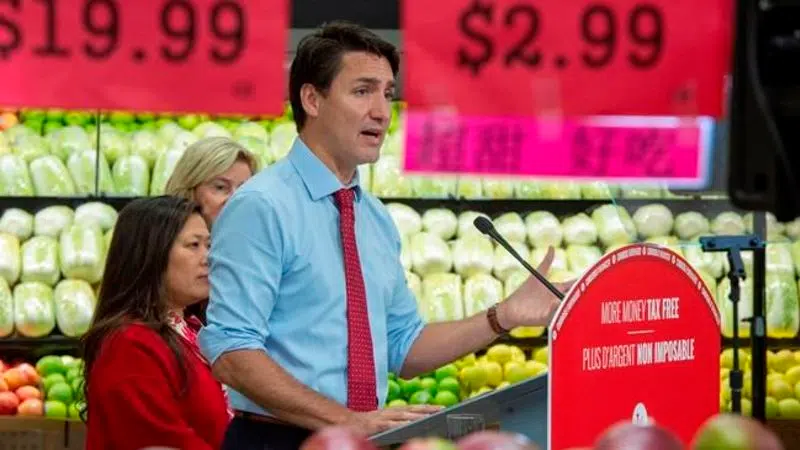
Conservative health ministers fight feds over military health costs
MARKHAM, Ont. — Liberal Leader Justin Trudeau promised Wednesday that military personnel will not suffer as a result of a battle over money that is playing out between the federal government and the provinces, which has already elicited strong words from Ontario, Alberta and Manitoba.
Speaking at a campaign event in the Toronto-area riding of Markham-Unionville on Wednesday, Trudeau characterized the question as one of “fairness” even as he blasted Conservative politicians for trying to score points on the issue.
“The reality is that the federal government is being charged significantly higher prices for the same services for military members as it offers to other Canadians, and we are just looking at making sure that the system is fair for everyone,” he said.
“The reality is what we are looking at will not cut any services to any military members nor will it negatively impact hospitals or service providers. But we’re seeing a lot of Conservative misinformation in this election campaign. Canadians need to be attentive to that.”


